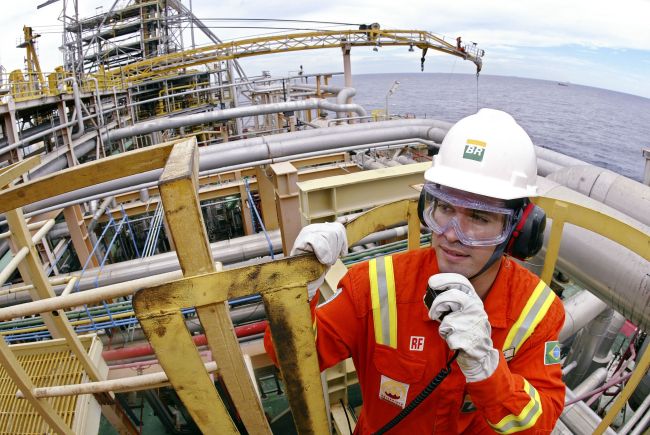/i.s3.glbimg.com/v1/AUTH_37554604729d4b2f9f3eb9ad8a691345/internal_photos/bs/2022/B/T/MGfmAXQTaGl7OqFBBUhQ/cade.jpg)
During a tense session that lasted almost four hours on Wednesday, the Administrative Council for Economic Defense (CADE) approved the sale of Oi Móvel to Telefônica (owner of Vivo), TIM and Claro, joined in alliance. The approval for the operation is followed by severe measures to preserve competition, such as the obligation of telecoms to sell half of the base transceiver stations (ERBs, or antennas) they will receive from Oi.
Telefonica’s CEO Christian Gebara told Valor that Oi Móvel remains an attractive business, despite the imposition of stronger-than-expected remedies. “The remedies presented by Anatel and CADE´s General Superintendence were already strong enough and adequate for the operation,” said Mr. Gebara.
The transaction was approved with the determination that “remedies” are applied before the deal is completed. This is part of an Agreement on Merger Control (ACC) negotiated between the antitrust agency and the buyers.
For Oi, the sale of the asset will generate the resources necessary for the execution of the company’s new strategic plan, said the president of Oi, Rodrigo Abreu, in a statement. The mobile services unit was sold in a judicial auction in December 2020 for R$16.5 billion.
Among the various aspects cited by Oi as important with this transaction, is the feasibility of reducing its debt, “being the main source of cash to pay bankruptcy and extra-bankruptcy creditors, among which are BNDES, Anatel, the Banco do Brasil and Caixa Econômica Federal, in addition to enabling the maintenance of the other activities of the company’s recovery process.” Net debt stood at R$29.9 billion in the third quarter of 2021.
The endorsement of the deal shows that in the struggle between the trio of teles on one side, and on the other, several regional and incoming operators, such as Algar Telecom and Copel/Sercomtel, the giants won by force. Controlled by the Bordeaux fund, led by businessman Nelson Tanure, Copel gave up the fight, said CEO Wendell Oliveira.
The owner of Vivo will pay an estimated amount of R$5.5 billion for its share in the business. According to the CEO, Telefônica has more than enough cash to sustain the operation.
Mr. Gebara said at the moment he does not have information on the impact of the revenue from the assets of Oi Móvel for Telefônica, since the revenue from the company’s customers will only be accounted for in its group after the closing of the deal.
Telefônica will also receive around 10 million customers, most of them in the Northeast region, where it has a lower market share and excess capacity, and in the state of Paraná.
About how much this asset will add to Vivo’s revenue, the executive preferred not to anticipate. He said there are many issues still to be resolved upon closing the deal.
“Oi’s customers will be well received,” said Mr. Gebara, adding that they will be able to count on Vivo’s entire product portfolio. They will even be able to browse the internet at a frequency of 700 megahertz, for 4G, and on 5G — Oi does not have any of them.
“It is the end of a long regulatory and competitive approval process, which allows for an important rearrangement of the sector, with more services and competition for the consumer,” said the executive about the approval of the antitrust body.
According to calculations made by a source that follows the sale of the asset, the division between the telcos is done, but may be updated. From the value of the deal, TIM will pay 44.3%, Vivo (33.7%) and Claro (22%).
Of the number of Oi’s clients, TIM will keep 14.5 million (40%); Vivo, 10.5 million (29%) and Claro, 11.6 million (31%).
Of the infrastructure part, TIM will have 7,500 ERBs (50%), Vivo 2,700 (18%) and Claro 4,700 (31%).
TIM will receive 54% of the spectrum (49 MHz) and Vivo, 46% (43 MHz). Claro, which already reached the limit established by Anatel when bought Nextel, won’t take anything in this operation.
Oi’s common shares and preferred closed in fall in B3.
Source: Valor International

/i.s3.glbimg.com/v1/AUTH_37554604729d4b2f9f3eb9ad8a691345/internal_photos/bs/2022/E/2/W4XYfxSTyoabHmFBV9pw/29042017rondonia-20-2848-29.jpg)


/i.s3.glbimg.com/v1/AUTH_37554604729d4b2f9f3eb9ad8a691345/internal_photos/bs/2022/9/5/LlnliySMiVTZ88E8tmyQ/09emp-100-mater-b5-img01.jpg)

/i.s3.glbimg.com/v1/AUTH_37554604729d4b2f9f3eb9ad8a691345/internal_photos/bs/2022/C/b/EvzUJOSbAwTcAgwTbY0A/09emp-100-gd-b2-img01.jpg)

